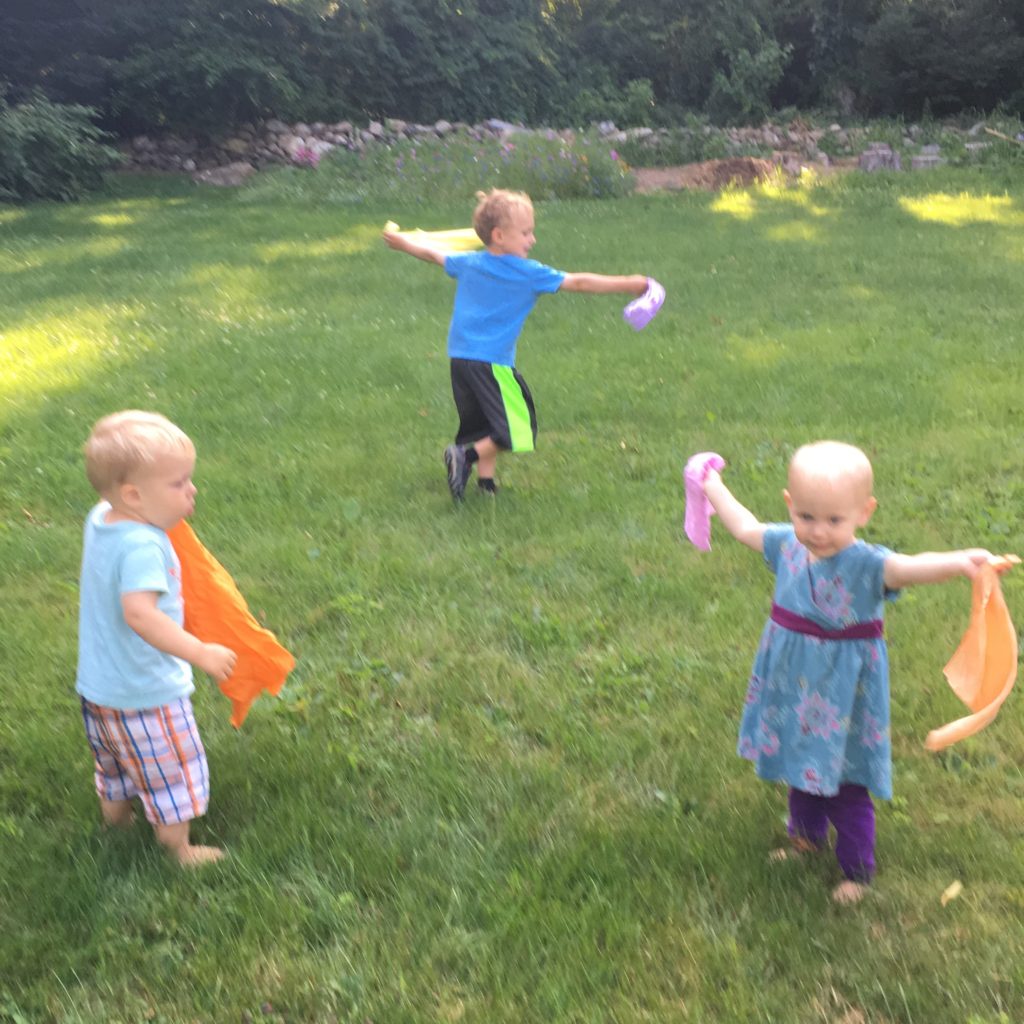
If you happen to be at a family-friendly music event (say, a concert in the park), notice who’s dancing.
Here’s what I’ve seen: Toddlers and preschoolers of any gender get right up there and move their bodies. They sway and jump and wriggle to the music with great delight and big grins, clearly having a blast.
You may also see elementary-age girls dancing—but seldom boys. This continues all the way into adulthood. You’ll see groups of adult women dancing, but never men. That’s a shame.
Somewhere in early- to mid-childhood, many boys somehow learn that it’s not okay for them to dance. They lose their freedom to express themselves physically, other than in ways that are aggressive or competitive. Somehow playfulness and gentleness become unacceptable. And that’s just so sad.
At a basic level, this is a loss of creativity and expression. You may feel like moving to the music, but people might say you’re girly or sissy or something, so you don’t. You stand there and ignore the desire to dance. You may distract yourself by running off and doing something else. You start to internalize the view that masculinity precludes certain behaviors. Before long, you may forget how much you enjoyed dancing when you were really little; you may think you have no impulse at all to do it. When you grow up, you may need to have several drinks before you stop repressing that impulse and let yourself dance. (Then, it doesn’t really “count,” because you were loaded….)
Sad as it makes me that so many men lose the joy of dancing, the bigger picture is even sadder.
Not only do many males disconnect from dancing, they also disconnect from their bodies in other ways. They learn to ignore the parts of themselves that yearn to be cuddled. They learn to never cry, even though sometimes it’s all they can do to keep tears in. They learn that many feelings are unacceptable for guys (anger and lust are fine, but fear, sadness, even silliness…not going there). They learn to “tough it out” through injuries even when that means serious damage to their bodies. They learn to express affection for friends only in very limited ways (shoving, fist bumps, etc.). They expend lots of energy repressing feelings and impulses—and after a while, don’t even realize they’re doing it. A lot of men grow up not knowing the full spectrum of their own humanness.
For many men, one of the only safe places for tender, gentle feelings is sex. No wonder guys are so focused on getting laid! Sure, hormones play a role. But intimacy with a sexual partner has the double benefit of being socially acceptable, even admired by other guys, and giving a guy a chance to let his guard down and be held. In bed, especially with a regular partner, he can be gentle and playful, and it’s okay. Maybe he can even dance with her (if no one else is looking, or if the dancing is a prelude to getting sex rather than an enjoyable activity itself). It’s great that those softer feelings may come out in a romantic relationship, but that’s still pretty limited.
We’ve made some progress in recent decades. For instance, more men today are able to access their softer sides when they become fathers, and that’s wonderful. But let’s each do what we can to expand our sons’ ability to be whole humans, to know their own tenderness, to tolerate vulnerability—and to be playful. If you’re a parent, be careful what you say about gender-role expectations that limit boys. (Your son takes in expressions like “wimp” and “wuss” and “throws like a girl” even if they’re not directed at him.) If you’re a father, get to know your own gentle, goofy, vulnerable parts. Let your son see you cry—and dance! There’s no reason the girls should be having all the fun. 🙂